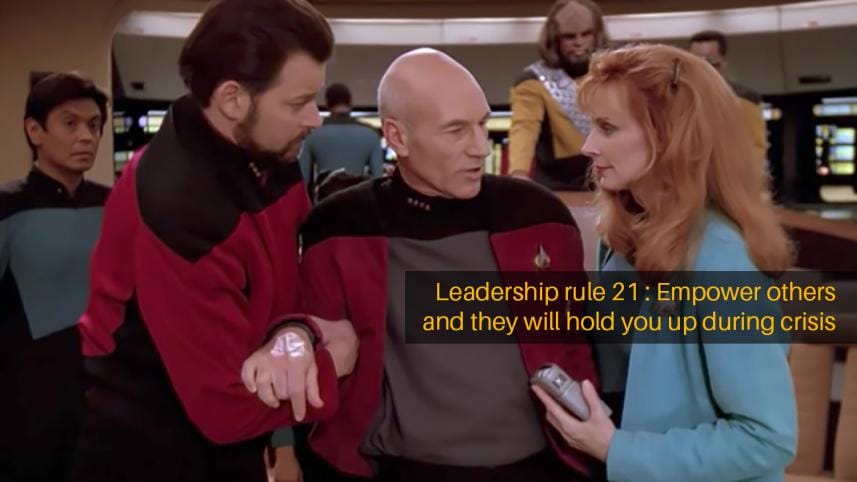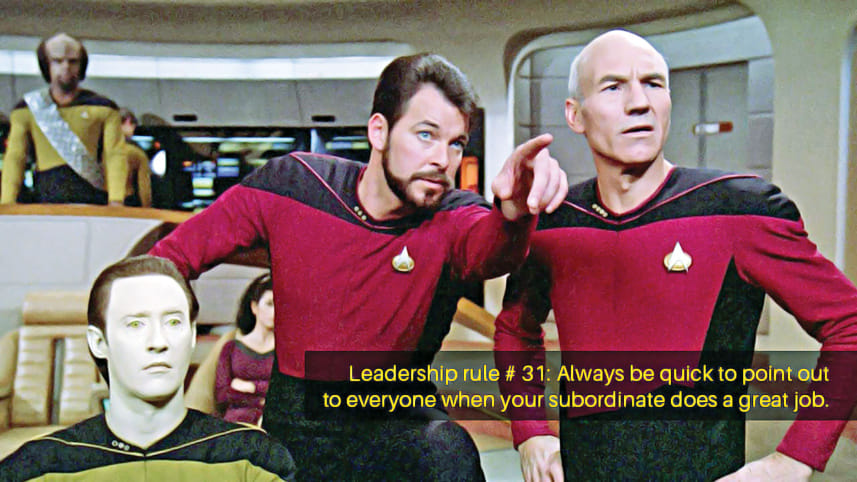Business and leadership lessons from Star Trek

In 1966, the world was introduced to the world of Star Trek. People watched as Captain Kirk and crew of the Starship Enterprise ventured out to different parts of the universe to explore strange new worlds, to seek out new life and civilizations and to go boldly where no man has gone before. On the surface, it seems like it is a series about a bunch of pacifists trying to catalogue alien environments but there is much more happening underneath the surface. Crews learn from their encounters with alien races and adapt to them while reflecting on their actions. Take Data, for example, an android from Star Trek: The Next Generation, who is continually observing humans, to become more humanlike himself.
Gene Roddenberry had a progressive and hopeful vision of the future, one that was built on collaboration, exploration and diversity of perspectives. Almost 54 years, 6 television series and 12 films later, the Star Trek franchise and the vision behind it resonated with many people not just within the fandom but others as well. The Star Trek series was a groundbreaking show not just in terms of pioneering various technological innovations but it also puts forth several key business and leadership lessons for managing people and businesses.

There is no 'I' in 'Leader', except Kirk, Picard and Sisko
Today, leading and managing a team as diverse as in Star Trek, be it in USS Enterprise or USS Voyager is not that unusual. Businesses might not have Klingons, Vulcans and Romulans to fight but the challenges they face are just as real. Learning leadership qualities from Star Trek Captains include the fact that all the Captains and Commanders are team leaders, connecting and communicating well with their crew members. In the episode "Melora" of Star Trek: Deep Space Nine, Doctor Bashir even said, "No one on this station is completely independent".
Everyone has ideas worth listening to
Captain Benjamin Sisko, commander of Deep Space Nine is a master at effectively motivating and leading a diverse (multicultural) workforce and playing to his strength of delegating tasks with full authority, all the while maintaining responsibility for them. Captain Kirk understands that every crew member is essential, be it Sulu, Uhura, Spock or McCoy. He listens to everyone's suggestions and tries to find a solution. Spock has all the facts, Scotty can fix anything and Uhura has great linguistic capabilities. Business leaders should take lessons from this in terms of trusting their subordinates and having faith in their judgements.
Take risks
Captain James Kirk said, "Risk is our business. That's what this starship is all about." Indeed, successful leaders should be willing to take risks. They should be able to think on their feet and be daring enough to try out new things. From rash Kirk to stolid Picard, all of the captains had the courage and ability to make decisions with whatever limited information was available to them.
Know you're alien (or customer)
The 194th Ferengi rule of acquisition (Star Trek: Deep Space Nine) states, "It's always good business to know about new customers before they walk in your door." In any business, priorities on customer and customer service tend to lead to long-run success. Such instances can be seen in real-life examples from retail businesses to hospitality.
As we get ready to go where humanity has never gone before with the dawn of a new decade, it might just be useful for businesses and entrepreneurs to log onto a video streaming service holding Start Trek or dig a book or two off the shelf, for a refresher course and reminders on what it takes to be an effective and successful leader and run a successful business.



 For all latest news, follow The Daily Star's Google News channel.
For all latest news, follow The Daily Star's Google News channel.
Comments